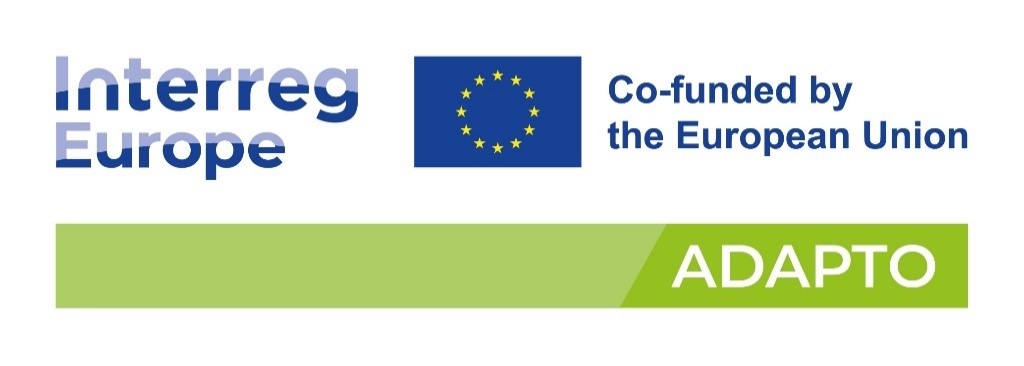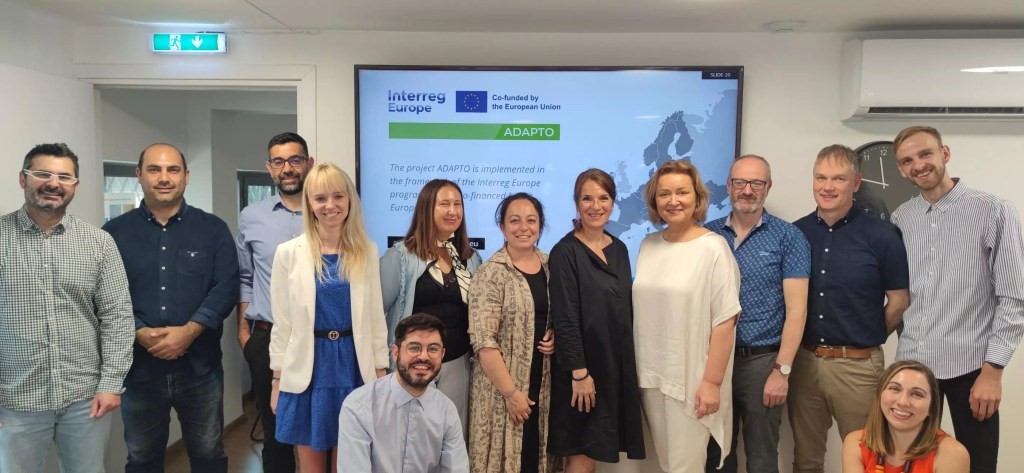
021-2027 Interreg EUROPE programme
TUS Project Budget: €137,658
Total Project Budget: €1,485,524
Project Reference Number: INTERREG 02C0657 Regions adapting to climate change
Duration
- Start Date: 01/04/2024
- Duration: Core phase 36 months
- Follow-up phase: 12 months
- End Date: 30 June 2028
- Main Contact
- Elaine Cleary
- Elaine.cleary@tus.ie
Brief Overview/Project Summary
The overall aim of the ADAPTO project is to increase territorial resilience to current and future climate change impacts, through interregional exchange on design, development implementation, and monitoring of climate adaptation policy measures.
The specific objectives, designed to achieve this overall aim, are thus to:
- 1. Understand the status quo in each territory, considering the content of adaptation strategies, how risks/vulnerabilities are assessed and targets/goals are defined, capacity and expertise of entities tasked with adaptation actions.
- 2. Use interregional analysis on the status quo to support the identification of Good Practices that can help design and develop assessment, foresight, implementation, and monitoring tools;
- 3. Build capacity among public authorities and stakeholders to cooperate for improved, multi-level governance of climate adaption;
- 4. Use all of the above to design and implement smart, systemic, and swift adaptation plans.
Project Aim(s) & Objective(s)
ADAPTO’s core phase approach is designed to maximize the impact of interregional exchange activities on policy improvement in all regions. It uses 3 interlinked steps detailed in a Methodological Handbook prepared by the LP and Advisory Partner at the project’s outset. They are flanked by management and communication activities.
ADAPTO builds policy capacity at the individual and organizational levels. In all steps, partners involve quadruple helix stakeholders (public authorities – i.e. civil protection, transport, energy, economy, health, education, etc. – universities, business associations, and civil society orgs).
Step 1 – Understanding the Status Quo (Semesters 1-2)
Partners undertake an in-depth analysis to map the status quo in their territory on vulnerabilities and adaptation measures. It covers different elements included in current climate adaptation strategies and related policies. It identifies measures being put into place in each territory and at different governance levels. The focus then turns to assessing:
- Current capacity in terms of foresight to predict and analyse impacts of climate change;
- Challenges and vulnerabilities of different sectors (i.e. agriculture, public health, energy, natural ecosystem, tourism, water, etc) / different territorial areas (i.e. coastal/rural/more or less densely populated) / different social groups.
- Social, economic and environmental risks and costs;
- The role of different stakeholders, at various governance levels, and of citizens.
Activities include: desk analysis, interregional workshops, stakeholder meetings, participatory tools (focus groups and online surveys co-designed by partners and administered in local languages), support from expert advisory partner in gathering and analysing information, resulting in an interregional Challenge matrix.





